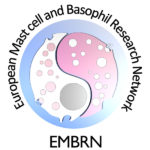We are searching for motivated and outstanding MSc/PhD/MD/PostDoc research students to take on challenging projects in the field of Allergy, Cancer, Corona virus and Antibody-mediated therapy
Lab work includes immunological, molecular biology and microbiology methods, as well as in vivo mouse models of disease and work on human cells. Projects: Mechanisms underlying the pathophysiology of skin and airway allergic disease (Atopic dermatitis and asthma) Resolution processes of allergic inflammation Activating and
